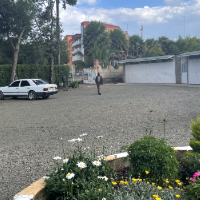 Stargardtiens always take a little longer to realise what is in front of them or what is happening. This is sometimes unpleasant because they have no warning, are surprised and have to react spontaneously. But it also protects them from making rash judgements.
Stargardtiens always take a little longer to realise what is in front of them or what is happening. This is sometimes unpleasant because they have no warning, are surprised and have to react spontaneously. But it also protects them from making rash judgements.
The organisation in Kenya for which I have worked for the last four years provides social services to the local population: children in need, victims of violence, and people with addiction or mental health problems. The majority of those seeking help are assisted by volunteers or social workers, but many also come on their own. At a retreat of the organisation on the topic "How can we guarantee the quality of our services?", a colleague made an impressive self-reflection. His office has a direct view of the entrance gate, and he said that in all the years he has been working here, he has learned to recognise at first glance what kind of help the person coming through the gate is looking for. He asked himself and us whether this is a sign of deadening and that those seeking help no longer experience the unrestricted openness and impartiality they actually deserve. This kind of quick judgement and categorisation threatens to reduce the quality of the services provided.
I was once more amazed that the normally sighted are capable of this. I can just about tell if someone is coming through the gate or not, it is impossible for me to judge what kind of assistance the person is looking for. For that, people would have to come much closer. And it is usually not enough for them to stand two metres in front of my desk: Depending on the light, I still can only see a dark figure.
Sp, when a person seeking help knocks on my office door and enters when I call. I see the person but am not sure if it is a colleague or a client until she begins to speak. The only clue I get is the sometimes hesitant appearance and speech of the person entering. But this is not a clear sign, as some of my colleagues are also acting shy when they enter my office.
As a Stargardtien, one is somewhat immune to rash judgements. The "at first sight" doesn't work, it takes more information to recognise and at best classify someone. Of course, I judge too, but I have less time to think about how to react. As a bridging strategy, I am always polite in such moments and treat people as if I were meeting them for the first time. Which is sometimes funny or strange for those who know me but not my Stargardt.
This article is part of the series "Stargardt in Africa".
